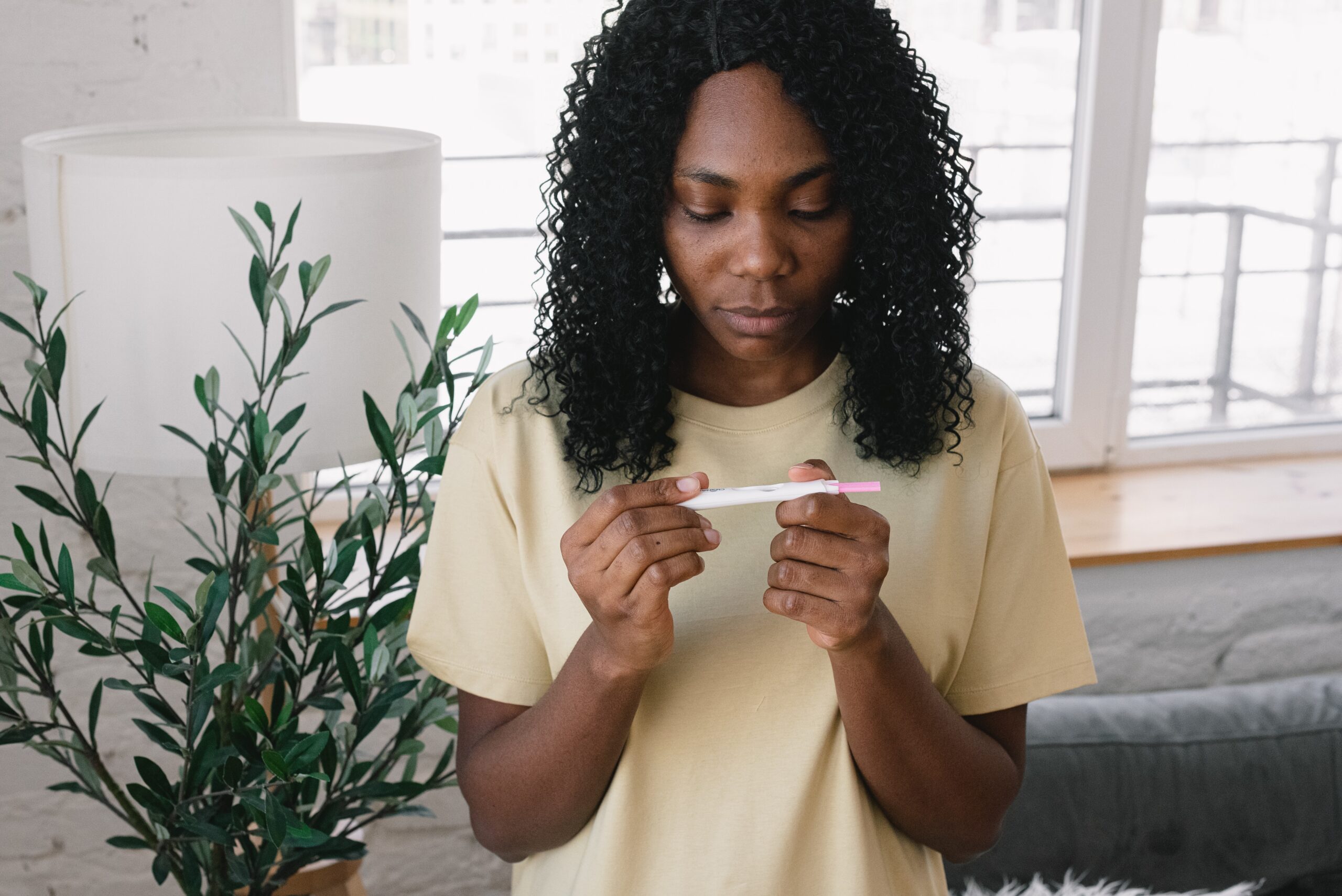It’s time to start talking about fertility. For far too long talks about the trials and tribulations of getting pregnant have flown under the radar in the Black community. Filmmaker, Chiquita Lockley, wants to change that with her documentary “Eggs Over Easy.” The film explores the lack of conversations among Black people when it comes to fertility and reproduction.
“Eggs Over Easy” addresses sensitive subjects like adoption, fibroids, endometriosis, PCOS, IVF, egg freezing, being childfree by choice, and more. The documentary is available to stream on Discovery+.
Actor and fertility advocate, Kellee Stewart, is featured in the film. She spoke with 21Ninety about all things “Eggs Over Easy,” her fertility journey, partnership with event planning site Evite, and her hopes for more conversations about reproductive health among the Black community.
“Eggs Over Easy”
Stewart became a part of the documentary film project because of her friend and fellow actress, Keisha Knight Pulliam.
“She was familiar with my egg freezing journey, and while filming a movie together, she asked me to share my story in the film,” Stewart said.
In the documentary, Stewart explains how the end of a seven year relationship motivated her to speak with her medical provider about freezing her eggs.
“I was 37 years old when that relationship ended so I didn’t have time to dwell in it,” the actress said. “Instead I immediately froze my eggs because having an option to motherhood means more to me than having an option to the next relationship.”
Stewart ended up successfully freezing 29 eggs.
Fertility taboos
On April 11, Lockley and Stewart appeared on CBS Mornings to talk about the film as well as the barriers to procreation for Black people.
When asked about the taboos surrounding fertility conversations in the black community, Lockley spoke to two main points: slavery and the cost of having a child.
“Since slavery when we had the trope of ‘fertile mertile,’ it’s assumed that Black women can have children and when you can’t there’s a shame attached to not being able to do what society tells you what you should be able to do,” Lockley stated on the morning news show.
As for cost, Stewart told 21Ninety her fertility treatments definitely weren’t cheap.
“The cost for the medication and procedure was around $15,000, a hefty price tag as it is not yet covered by insurance,” Stewart says. “And that doesn’t include the storage which is approximately $89-$150 a month.”
Celebrating the journey to parenthood
With the astronomical costs that can come with planning to expand a family, Stewart has partnered with event planning site Evite to create Parenthood Journey Invitations to help people support one another on their journey to becoming parents. These special invites aim to help users organize not-so-common parenting-related events, including adoption showers, IVF showers, rainbow showers, and egg showers.
“I always encourage people to think outside of the box and throw yourself an egg shower! I’ve partnered with fertility clinics to host egg showers with free giveaways but noticed there’s no invitation for such a thing. So, I needed to change that,” the fertility activist said. “Everyone’s journey to parenthood deserves a shower!”
Sparking conversation
With the help of “Eggs Over Easy” and other activist work, more people are sharint their journey to conceive.
“It’s time to debunk the myths about Black fertility,” Stewart says. “Black women with ovaries/wombs suffer three times more from underlying conditions that affect fertility than our counterparts,” she states.
Many times even conversations about periods are kept hush-hush and that silence is both physically and emotionally painful.
“[Black people with ovaries/wombs] mustn’t allow heavy and painful menstrual cycles to be a Black woman’s normal. It’s not. It’s an indication of something else going on in [Black people with ovaries/wombs’] reproductive system, [Eggs Over Easy] demonstrates those facts beautifully and calls us to action,” Stewart elaborated.
Fortunately, Stewart is already seeing more conversations starting, including in her personal circle. The actor reveals that her friends and family are now more open to talk about their fertility because of her openness. It’s a transparency that she sees spreading.
“I can’t tell you how many times I’ve been stopped on the street by a Black woman who saw the film,” Stewart said. “They feel seen, heard, and educated, which is exactly what Chiquita Lockley set out to do.”
